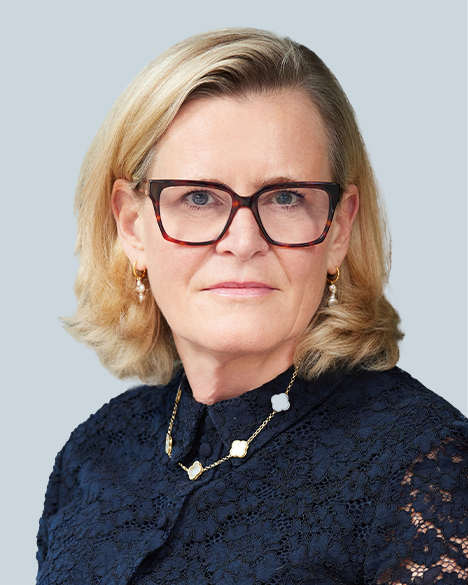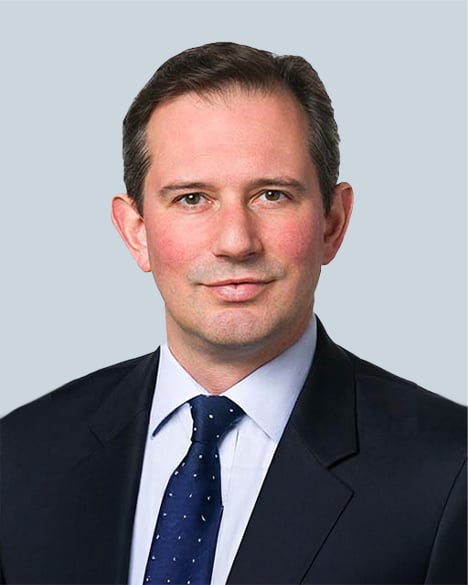
Key Takeaways: Kroll Alternatives and Asset Management Compliance and Regulatory Conference
Our speakers shared their expertise and views on various topics, including a discussion with the FCA looking at its supervisory priorities for the alternatives sector and the global regulatory outlook for 2024. Engaging panel discussions covered a wide range of subjects, including financial crime trends and technological innovations in compliance.
Regulatory Outlook in 2024 Amid Times of Change and Unrest
UK Regulation Landscape
The scope of UK regulation is changing, with the regulatory framework continuing its move from the previous EU jurisdiction to FCA ownership under the Smarter Regulatory Framework (SRF) initiative. This transition leaves room for change and progress as the FCA outlines its regulatory priorities. The industry has provided feedback on how it sees regulation working for firms and the FCA continues to evaluate this information as part of its policy work. As ever, the importance of strong governance at a transitionary time cannot be overlooked and is the foundational piece for the FCA supervisory approach.
Firms should look inward because strong governance forms the fundamental basis for good practice and adherence to regulation. It isn’t enough to simply follow regulations; firms must be able to show their proactivity in adhering to them. The FCA recognizes that there is no “one size fits all” approach and that smaller firms may be able to operate a far simpler governance structure than a larger firm with a more complex structure and set of investment strategies. There is also a recognition that governance risks are increased in fast-growing firms because such growth can place additional pressures on processes. The FCA is monitoring these firms to assess developing risks, and it is developing a proportionate regulatory framework for smaller firms.
Governance is central to an ongoing review of valuation practices within the private market sector as the UK regulator has concerns that performance is being inflated due to an opaque valuation process. Information is being gathered regarding valuation processes and the management information reviewed by the relevant boards and committees across the sector. The findings of this review are scheduled to be released toward the end of 2024.
Recent FCA enforcement actions show that market abuse is another supervisory priority area. Further work is expected with focus extending across the buy-side. The regulator noted that although firms employ sophisticated surveillance systems, these systems do not always appear robust or appropriate for the strategies employed. This in turn feeds into the FCA’s reviews of Annex IV reports (the periodic reporting required under AIFMD) that show firms are still highly active in higher risk markets including the usage of leverage. Precisely how firms—especially high-risk strategies and high-growth firms—are monitoring such leverage levels brings the supervisory circle back to the question of governance.
Global Similarities and Differences
Despite the regulatory outlook differing from jurisdiction to jurisdiction, there are some issues that hold global commonality.
One greatly debated issue is the future of off-channel communications. Newer means of communication such as WhatsApp or WeChat are becoming normalized as business channels, yet they may contravene regulations requiring firms to record relevant communications. This increases the risk of oversight in firms’ responsibility to keep books and records.
Because the use of these channels is frequently reported within the industry, it is time for financial institutions to take the responsibility into their own hands with their staff and teams in terms of this compliance hurdle.
This theme was further explored in a panel on the global regulatory outlook for 2024, though speakers cautioned that global regulatory bodies cannot be combined into a single amorphous category of “the regulator” due to jurisdictional and historical differences. In particular, the SEC focus on “books and records” and active enforcement is yet to cross the Atlantic. European regulators are more focused on cross-border marketing and adopting an approach that is far more grounded in a principles-based type of regulation.
The mandate for the European Securities and Markets Association (ESMA) may be evolving beyond the current overview of the implementation of pan-European directive and regulations. Though nothing concrete has been formulated there has been talk that the ESMA mandate could include oversight of larger firms spanning various EU jurisdictions. At the moment ESMA is content with reviews of supervisory practices, limiting oversight to national competent authorities. Similar to the federal reach of the SEC, however, we may see ESMA slowly taking on greater responsibility from national competent authorities in coming years.
Due Diligence and Financial Crime
Distressed Assets and Sanctions
In this continuing era of increased global and geopolitical unrest, proper due diligence at the point of sale is more important than ever. Firms must be cognizant of the potential geopolitical significance associated with certain transactions. Management of distressed assets may require new solutions and approaches, especially in a time when increased sanctions present new risks all over the world and contribute to the distressed nature of the asset.
Third-party due diligence is crucial with the source of funds; supply and sales channels and partnerships need to be thoroughly dissected because “bad actors” are more frequently hiding behind shell companies or firms that initially appear legitimate. The need for a full spectrum of due diligence across a company’s environmental, social and governance commitments and compliance also cannot be overlooked.
Firms may also benefit from conducting operational history investigations on prospects, which could unearth potentially problematic activities such as bribery or connections to risky political figures or politically exposed persons (PEPs). In 2024, buyer-inherited liability is more of a risk than ever.
Accurate valuations are also increasingly crucial, especially because distressed assets often look more attractive as their value lowers as a result of geopolitical conditions. Acquirers can often encounter challenges in later debt or insolvency cases if an acquisition is deemed to have not been judged at fair value. If purchasing or managing distressed assets, the assumption that their value can be financially improved under new ownership must be accurate to avoid risk; the extent of the distress must be quantified for effective valuation.
Private Markets Transparency
For a long time, private markets have been seen as an elusive sector. The question, though, is if the perception of a lack of transparency in private markets is a real issue or a generalization that has stuck. Information is available on private markets if parties look in the right place. Information is made available to investors, but the important differentiation in the general disclosure of information is when it has tactical benefits. A line must be maintained between strategically showing value and having a culture of systemic bias that leads to inflating and unreliable valuations.
Companies are within their rights to show value at beneficial times, but the onus is on the company to proactively prevent fraud. It’s one thing to have a policy; it’s another for a business to show it holds its people to account against said policy.
ELTIFs and LTAFs Opening the Market to Retail
The increasing number of European Long-Term Investment Funds (ELTIFs) and the UK Long Term Asset Funds (LTAFs) represents a significant area of growth in the investment landscape. The structures now allow retail investors potentially easier access to the diversified, long-term investment opportunities that have traditionally been available only to large institutional investors. By enabling ELTIFs in particular to be marketed across different EU member states under a single regulatory framework, passporting simplifies cross-border investments and expands the potential investor base while LTAFs are focused across the UK markets, targeting for the most part the UK pension fund sector.
This approach not only democratizes access to long-term investment products but also fuels the growth of these structures by attracting a more extensive range of capital. The resulting influx of retail investment can stimulate innovation and growth in various sectors, ultimately contributing to a more dynamic and resilient financial ecosystem.
BDCs Remain a More Robust and Attractive Model
Originally designed to provide capital to small and mid-sized businesses in the US, business development companies (BDCs) have enhanced investment strategies and risk management practices, leading to more consistent returns and reduced risk. BDCs have significantly evolved over the years to become more robust and attractive investment models as a result of regulatory advancements and improved compliance measures that further strengthen investor confidence. By diversifying portfolios and leveraging market expertise, BDCs now offer a compelling blend of high yield and growth potential, making them increasingly appealing to a broad range of investors. Now a fixture of US private market investment options, the BDC concept faces cultural hurdles across Europe, though it remains a tantalizing prospect.
Technological Innovation
Speakers at the conference also noted higher cases of insider threat when it came to cybersecurity. Fragmented data silos and the complexity of data formats are a pain point for firms, but often efforts to resolve these issues divert attention from cybersecurity resilience.
The rise of deepfakes—including audio-only facsimiles—is enabling far more complex phishing tactics and business email compromise (BEC), which remains the chief tactic used to target financial services firms.
Investing in external expert advice on cybersecurity will be critical to ensuring that firm data, finances and reputation are adequately defended.
The Alternatives Sector
The fastest rise in global interest rates since the 1990s has resulted in an increased cost of capital and is eating into returns for the alternatives sector. The private equity landscape reacted to this changing environment by “slamming on the brakes.” which resulted in exit opportunities drying up last year, and a proliferation of zombie funds that are marching toward their end of fund life.
In response to these market dynamics, creative alternatives are developing; however, these present some tax challenges, particularly as pending and potential taxation changes loom in the form of basis-point reforms, carried interest and changes to non-domiciled status rules.
Conclusion
Kroll’s 2024 Asset Management Compliance and Regulatory Conference brought together leading industry experts for a day of dynamic discussions and forward-thinking debate. The keynote sessions and panels delved into the FCA's supervisory priorities, global regulatory outlook and innovations in compliance technology.
The insights and strategies for navigating the regulatory environment provided by all speakers were invaluable and raised important areas of focus moving forward in the rapidly changing asset management industry. Ultimately, there is often no substitute for expertise and experience. If Kroll can help provide these for your business, please don’t hesitate to reach out.
Stay Ahead With Kroll
Financial Services Compliance and Regulation
In the ever-evolving financial services landscape, Kroll's award-winning team offers comprehensive regulatory and compliance services, guiding clients through registration, licensing, and compliance support to minimize risks and enhance efficiency globally.
Compliance and Regulation
End-to-end governance, advisory and monitorship solutions to detect, mitigate and remediate security, legal, compliance and regulatory risk.













